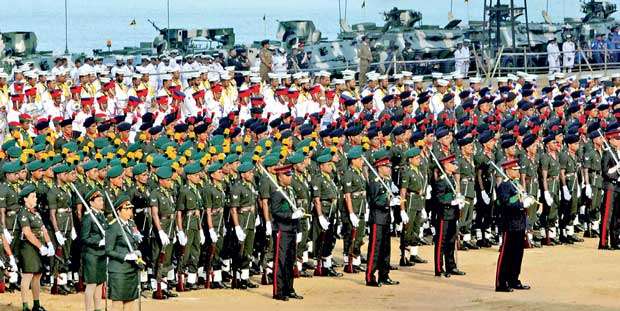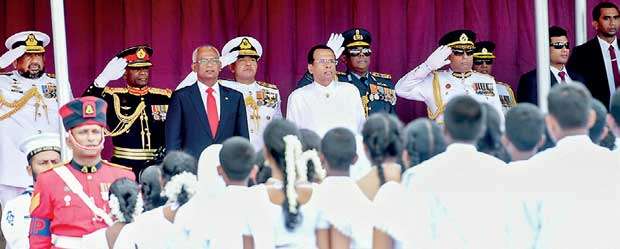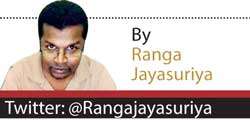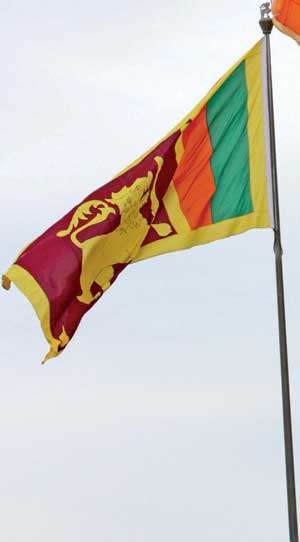Reply To:
Name - Reply Comment
Last Updated : 2024-04-16 21:36:00
71 years of independence


 As Sri Lanka celebrated her 71st anniversary of independence, there are two competing schools of thought that take stock of the performance of the foregone period. One is blinded by a heavy dose of patriotism, and the other, by an overdose of bitterness and acrimony.
As Sri Lanka celebrated her 71st anniversary of independence, there are two competing schools of thought that take stock of the performance of the foregone period. One is blinded by a heavy dose of patriotism, and the other, by an overdose of bitterness and acrimony.
The former selectively crows about accomplishments, especially in the broader area of social justice at the same time, glossing over the manifest underachievement in a much larger area, primarily of the economy and national unity.
Their opponents consider independence as a sordid farce, a period of majoritarian discrimination against ethnic minorities. The most vocal typed there also bankrolled an armed struggle that fought for the division of this country and, now lament the annihilation of the terrorists.
Leave aside supposed political correctness and put a face on the two opposing types: The majority of those who hold an unquestionably favourable opinion is primarily of Sinhalese (Perhaps Buddhist, often rural) background. The disgruntled lot are overwhelmingly Tamil, most vocal and venomous of whom have already emigrated.
This dichotomy of opinion is manifest in the contrasting reactions: There was a grand independence day parade in Colombo, and celebrations in many other cities and black flags were hosted in Jaffna.
Equally, an intriguing question is whether post-independent Sri Lanka managed to keep the momentum of these achievements, lately. In contrast to Sri Lanka’s unassertive achievements, countries that lagged behind in social indicators have made tremendous progress
However, a more nuisance assessment of Sri Lanka’s track record over the past 71 years is that it is modest, but not spectacular, troublesome, but not evil. It is one of the middle ground. An average C pass or B-.
In the most account, Sri Lanka’s achievements in social justice remain significant, however, the interesting point is that the foundation for these achievements was laid long before the independence. Equally, an intriguing question is whether post-independent Sri Lanka managed to keep the momentum of these achievements, lately. In contrast to Sri Lanka’s unassertive achievements, countries that lagged behind in social indicators have made tremendous progress.
For instance, in 1945, the literacy rate of Sri Lanka (then Ceylon) was 57 per cent and in 2017 it is 93 per cent. That is modest progress and is in line with the world; world literacy rose from 56 per cent in 1950 to 86 per cent in 2017. Whereas the literacy rate of India at the independence was 18 per cent. In spite of overall wretchedness of the vast majority of its teeming masses, India’s literacy has risen to 74% in 2017. Similarly, only one in five could read and write in China in 1950. Today, China’s literacy rate is per cent.
Similarly, Sri Lanka lost out qualitatively. In the 1960s, the then the University of Ceylon, ( now Peradeniya) ranked among the top 100 universities in the world. Now, none of the Sri Lankan universities is anywhere near there.
This explains another less-talked about aspect of Sri Lanka’s social progress. i.e. rather than being a well thought- out an economic plan, Sri Lanka’s social progress was a result of one big populist policy, which allocated scare economic resources to social projects as an election ploy- to win votes.
The populist narrative- rather than a long term coherent long term economic vision- of these policies should also be assessed in the context of bloated welfare measures, such as rice rations etc. also in offer at the time. Such dole outs came at the expense of long term economic development.
In the end, the economy grew at a modest 4.2 per cent in a yearly average during the last seven decades, which is less than ideal for a country of a low GDP base of 80 USD at the time of independence. Sri Lanka’s Per Capital GDP of an estimated 4000 USD as of now is a lot less compared to the performance of other states which had a similar economic standard in the 1950s, such as South Korea, Taiwan or Malaysia.
Performance of nations should be viewed in relative terms, in comparison to the achievement of their peers. Sri Lanka is an underachiever. Now it risks the prospect of losing its hither- too held relative advantage in secondary education and health.
 Sri Lankans may kowtow, various politicians, dead and living, as fathers of this nation. But in reality what Sri Lanka had at the helm of political power during the past seven decades were mere passengers, than any transformative leaders.
Sri Lankans may kowtow, various politicians, dead and living, as fathers of this nation. But in reality what Sri Lanka had at the helm of political power during the past seven decades were mere passengers, than any transformative leaders.
The venom of the other group of interlocutors is a product of two intertwined factors.
First, the Northern Tamils, the most articulate of minorities, were an exceedingly primordial lot, deeply ingrained in the Dravidian civilization which had metamorphosed into a unique sense of Tamil exceptionalism. Second, Tamils, perhaps only second to Burghers, were favoured by the colonial British and were disproportionately represented in the government service. That was in part, because they were hard working, had access to better education facilities thanks to American missionaries, but also, because they were willing to pay the second fiddle to the British, more enthusiastically than the Sinhalese.
However, the independence unleashed the political empowerment of the Sinhalese Buddhists, who at last wanted their due share in their country. Tamil elites did not want to share the spoil, nor did a certain sense of entitlement and superiority allow them to cooperate and cohabit. Tamil nationalist opposition emerged the very day the country gained independence- much earlier than the much demeaned Sinhalese Only Act was passed in 1956.
Sri Lanka’s process of political empowerment and mobilization of its people was premature. It also overwhelmed its nascent political institutions and infused political elites with a populist idealism that blinded them from the realities of governance.
This enhanced scope of political activism was too much for a nascent nation-state to cope with. It weakened the central government and tied its hands.
Northern Tamils were better off in Ceylon in the 1950s than their compatriots in Malaysia, which still maintains a Bhumiputra system that favours the native Malays over the other races, or Singapore. Yet, why it was in Sri Lanka that the Tamil elites played the most destabilizing role and refused to take a role in the Central Government (even as of now) is because the Sri Lankan state allowed space for dissent which neither Malaysia nor Singapore did. However, that unrestrained space of political activism effectively weakened the Central government, both to confront the excesses of dissent and accommodate the reasonable demands of protestors. Whereas if Sri Lanka had a rightwing autocrat who cracked the whip and herded everyone, to a unified policy, a good deal of Northern Tamil elites could well have vied for positions in his Cabinet. Singapore strikes a chord.
In the end, in the absence of adequate state response, Tamil opposition metamorphosed into a nihilistic and self-destructive terrorist campaign which robbed this country two decades of its prosperity. It had its worst toll on the Tamils themselves.
This explains another less-talked about aspect of Sri Lanka’s social progress. i.e. rather than being a well thought- out an economic plan, Sri Lanka’s social progress was a result of one big populist policy, which allocated scare economic resources to social projects as an election ploy
At its seventh decade since the independence, Sri Lanka is still riven by the mismanagement of its history of independence. It is also blessed by certain, ( perhaps even populist measures) that built a largely functional welfare society. However, continued mismanagement of things would rob the last glimmer of hope.
Just like their predecessors over the seven decades, politicians at present remain to be mere passengers riding the gravy train down the precipice. Electoral populism has distorted the policy coherence. Opportunism has its toll on the economy. Fifty-odd days of the constitutional crisis triggered by the President saw an over 1 billion USD of FDI flight out of the country and downgrading of credit status by three credit rankers, making it further expensive to borrow.
Tamil politics though subdued by the military defeat of the armed struggle may revive in the opportune moment. Their perceived grievances are not addressed, and given the primordial factors of Tamil exceptionalism, there is no guarantee as to whether addressing those demands would satiate the l nationalist quest or fuel further confrontation.
Countries learn from successful experiences of peer states and emulate them. Sri Lanka can learn from the experience of countries which were in similar economic standards decades ago and since then surpassed us in leaps and bounds.
The first lesson is that the government should regain a good deal of social and political autonomy to make policy changes in a disorganized polity like ours. That can be achieved through new laws and a bit of Gotabaya styled heavy-handedness. Policies should be pursued in a utilitarian, goal achieving manner, rather than them being excessively rule-following, which delay economic development in corrosive societies.
The Second should be to disentangle obsessive populism from economic policy. Third would be to build a cohesive structure vested with powers for policy and project implementation and monitoring.
The fourth ethnic question needs to be addressed since it remains a major distraction. Genuine grievances should be addressed through a constitutional amendment. However red lines should be drawn and enforced. The solution should entail a mixture of accommodation and threat or actual repression, where it is mandated, preemptively.
Ignoring these national priorities or mishandling them would result in other several decades of underachievement.

Add comment
Comments will be edited (grammar, spelling and slang) and authorized at the discretion of Daily Mirror online. The website also has the right not to publish selected comments.
Reply To:
Name - Reply Comment
On March 26, a couple arriving from Thailand was arrested with 88 live animal
According to villagers from Naula-Moragolla out of 105 families 80 can afford
Is the situation in Sri Lanka so grim that locals harbour hope that they coul
A recent post on social media revealed that three purple-faced langurs near t